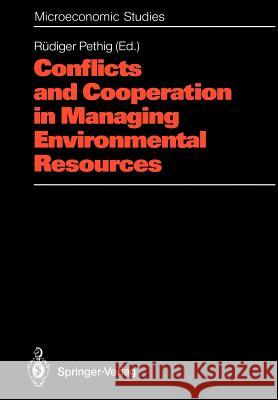Conflicts and Cooperation in Managing Environmental Resources » książka
Conflicts and Cooperation in Managing Environmental Resources
ISBN-13: 9783642467677 / Angielski / Miękka / 2012 / 338 str.
The use of environmental resources involves strategic be- havior of self-interested agents, bargaining, cooperation and other efforts to provokeor settle conflicts. In order to model conflicts and cooperation in managingthese resources most papers contained in the book make use of advanced game theoretic concepts. The first six contributions investigate conceptual issues of international conflicts and cooperation while the other four address conflicts and cooperation arising in the context of monitoring and enforcing environmental controls. The emphasis is on demonstrating how new developments in economic (game) theory can fruitfully be applied to important environmental issues. Descriptive as well as normative approaches are presented. In the context of international environmental problems attention is focused on the consequences of non-cooperative behavior and on the incentives for, and barrieres to, the emergence of cooperation. Incomplete implementation of environmental controls can be attributed, to some extent, to failures of monitoring and enforcement which, in turn, raises the issue of designing institutional arrangements allowing for (more) effective enforcement. Students and researchers with a working knowledge of economic theory can expect to learn how complex issues of economic-environmental interaction are successfully tackled by advanced (game) theoretic methods.











